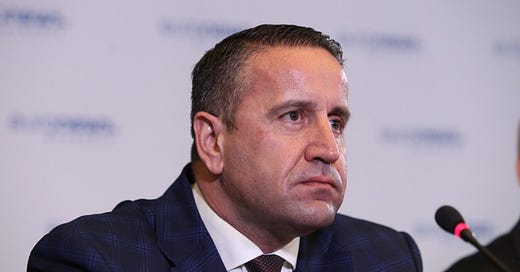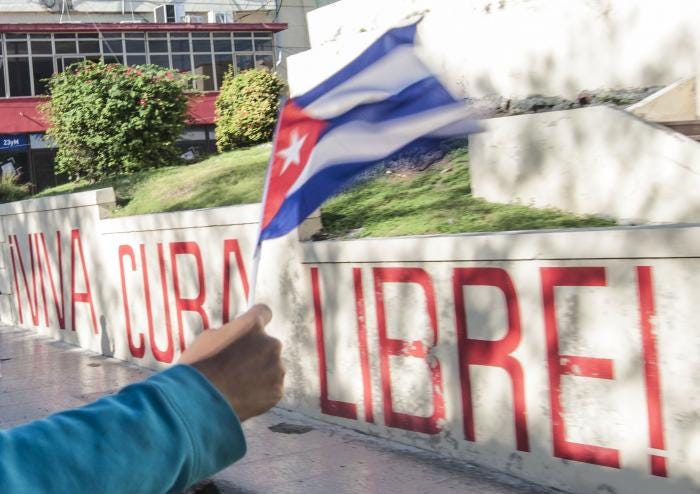George Harizanov, CEO of the Institute for Right-Wing Policies in Sofia, Bulgaria, published “‘Trump Derangement Syndrome’ as Viewed From Abroad” in Daily Signal on May 13, 2025. Harizanov writes that since 2016, “the Left has launched a nonstop war to delegitimize President Donald Trump.” From his vantage point in Bulgaria, Harizanov stresses the effect of “Trump Derangement Syndrome,” also known as TDS, on the worldwide image of America. TDS, he writes, “has metastasized from elite cocktail parties into a global virus more harmful to America’s image than any foreign propaganda campaign.”
Both the legacy media and the social media share the anti-Trump obsession. “Since 2016, the legacy media has pummelled Trump with unrelenting negativity. Global audiences have been force-fed images of riots, Russiagate hysteria, impeachment dramas, and social chaos.” In social media, in platforms like X, Facebook, and Instagram, “every policy disagreement becomes a constitutional crisis; every Trump speech, a supposed fascist rally; every MAGA voter, a target for ridicule.”
Harizanov maintains that Trump Derangement Syndrome has become “America’s most costly export.” He asserts, “if you’re an enemy of the U.S., this is the golden age of free propaganda—funded by American taxpayers and delivered by American institutions.” As a consequence of TDS, “the world sees a country that cannot govern itself, a population at war with itself, and a media more interested in defeating Trump than defending national unity.”
Harizanov focuses on the effect of TDS in Bulgaria, where “traditional anti-American voices in Bulgaria . . . have seized on U.S. media narratives to argue that American democracy is a fraud and the U.S. president is a threat to world peace. They’ve been gifted an endless reel of footage, headlines, and talking points courtesy of CNN, MSNBC, and The New York Times.” In addition to the traditional anti-Americanism, a second group has emerged in Bulgaria, who describe themselves as “civil society activists,” which are funded by US grants through George Soros’ Open Society Foundations, the US Agency for International Development, and Radio Free Europe. He laments that these civil society organizations, instead of using the funds to strengthen pro-American sentiment in Bulgaria, follow the anti-Trump leftist mentality, denouncing the USA as racist, imperialist, and fascist. And they promote “mass migration, extreme gender ideology, and anti-family narratives that alienate ordinary Bulgarians.”
Harizanov believes that TDS is “a deliberate campaign to weaken America from within and broadcast that weakness abroad.” He suggests that the Left, wittingly or unwittingly, participates in this campaign to destroy America: “when the American Left tries to destroy its own president, it sends a message to every country—ally or enemy—that the United States is fractured, fragile, and unfit to lead.”
The Bulgarian Institute of Right-Wing Politics is committed to the promotion of conservative and right-wing thought, and it has a long history of influential presence in Bulgarian politics. It is committed to the preservation of traditional values and the safeguarding of the cultural heritage and wisdom passed down through generations. It advocates the reduction of budget deficits, through spending cuts and/or tax increases. And it seeks to engage academia in public debate and to connect scholarly insights to real-world issues.
On the other side of the ideological and geographical world, Carlos Garrido, Secretary of Education of the American Communist Party and a Cuban-American professor of philosophy, also discerns and rejects Trump Derangement Symptom, not for its impact on the American image abroad, but for its failure to see the potential of MAGA. Writing in his Substack column, “Philosophy in Crisis,” Garrido observes that MAGA is a unique “American form of partisanship,” which “has become the host of every possible real counter-hegemonic ideological tendency within the United States.” In Garrido’s view, Trump Derangement Symptom is illustrated by leftists who see the MAGA movement as a “modernized version of fascism with American characteristics.” He maintains that this view of traditional leftist critics is not based in personal encounter with the MAGA movement, but on “the caricature of it that is spun by the mainstream liberal media.” As a result of his own experiences of living in MAGA country in Iowa and Southern Illinois, Garrido maintains that “MAGA represents an organic and spontaneous manifestation of a forgotten working class anger.”
The anger of the working class, Carrido further observes, “is rooted in the simple fact that the security, stability, and economic wellbeing of the American working class in the era of their parents and grandparents, the era that afforded at least a semblance of reality to the American dream, exists no longer.” MAGA is opposed, he notes, to the intelligence agencies of the Deep State, the pharmaceutical industrial complex, the legacy media, educational institutions that stoke division by promoting “diversity,” and the political establishment, which pretends to represent the people as it serves the interests of banking cartels, investment firms, and big corporations. Garrido calls upon communists “to understand the revolutionary potential of the MAGA base . . . and to go to MAGA and show them that what they liked about Trump could only be realized through American socialism,” based in a vision of socialism with American characteristics.
TDS has infected Cuba. It has been a long time coming. When I first arrived in Cuba more than thirty years ago, as I discovered the advanced character of its political-economic system and political culture, I found something peculiar, namely, its uncritical acceptance at face value of what the US Left was saying about the USA. I first had an inkling of this when I saw a Cuban news report on a protest in the USA against the blockade of Cuba. The report implied that there was a strong movement in the USA against the blockade. The news report ignored the US Left’s superficial and limited understanding of Cuba and of the Third World in general, and its limited capacity to generate an anti-imperialist movement in the United States, as a consequence of its theoretical weaknesses; and as a result of the weakness of the US Left, the limited awareness of Cuba among the people of the United States.
I subsequently observed that, in its relations with the “friends of Cuba,” Cuba made little effort to explain the characteristics of its process of people’s democracy, which without question is the most important achievement of its socialist project.




